Ever since the coronavirus (Sars-Covid 2) began spreading around the world, authorities and the scientific community have emphasized the fact that vaccination is one of the main ways to end the pandemic.
But, as vaccination progresses in many countries, many people are also asking how their lives can change after receiving immunizations. And, this is a question that should not surprise us.
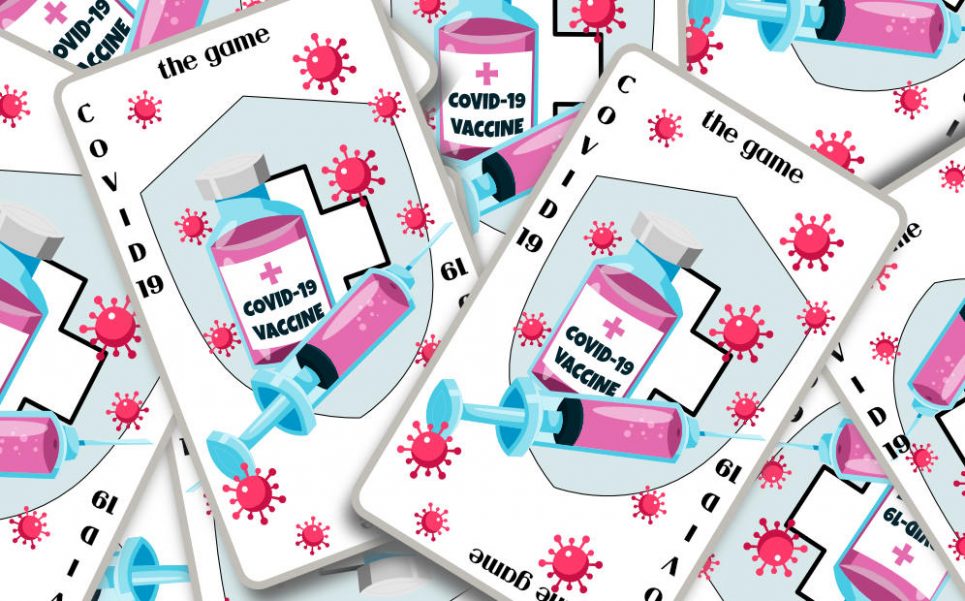
It would be strange if we were not concerned about receiving a vaccine that has not been sufficiently tested, of which we do not really know the side effects or its real effectiveness against the virus that afflicts us.
These are not normal times
But these are not normal times. Since the beginning of 2020, we have been attacked by a virus that does not seem to want to give up or give us a chance as a species. And this is precisely why the issue of vaccines is so important.
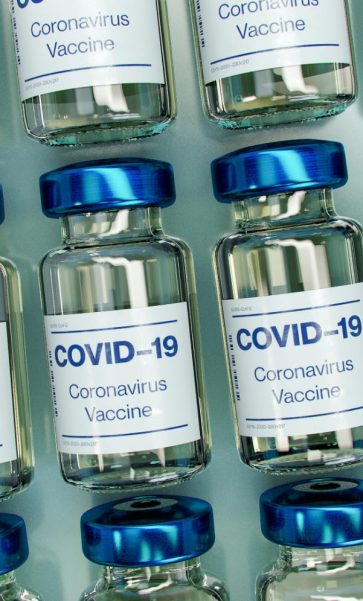
Now that millions of people are receiving doses every day, governments, universities, and public health agencies have also begun to publish their recommendations of what those who have been vaccinated can and cannot do.
These recommendations may change as more is learned about the vaccines or the current variants of the coronavirus.
Regulations in Europe have changed substantially. In the case of Germany, some areas are more at risk than others. In Germany, everything is managed according to the incidence in each region, city, and town.
This issue of incidence drives people crazy because as they change so suddenly it is not possible to have activities since the number of infections of the place and the relevant rules must always be controlled.
It is important to keep in mind that we are still discovering how the virus works, the different variants, and the vaccines.
The effectiveness figures of the covid-19 vaccines are accumulating in the headlines, raising the hopes of a world eager to overcome the pandemic nightmare.
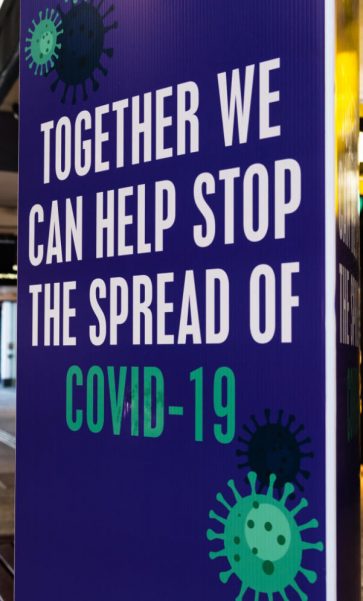
The latest known figure was the 92% efficacy rate attributed to the Russian vaccine Sputnik-V by an article published in the scientific journal The Lancet, in addition to the 95% reported for the vaccine developed by Pfizer-BioNTech, 94.1% for the Moderna vaccine, and 70% for the vaccine developed by Oxford University and AstraZeneca.
These are all encouraging data that suggest that mass vaccination programs should serve to bring under control the SARS-Cov-2 coronavirus, which has already caused more than two million deaths worldwide, and a health and social crisis unprecedented in recent history.
Unlike those developed by Pfizer and Moderna, which are based on a novel technology that allows the body to be exposed to a fragment of the coronavirus RNA, Sputnik-V uses a common cold virus that is modified to act as a vector and trigger a controlled immune system response that will be repeated if it detects the presence of SARS-Cov-2 in the body.
According to experts, many more will be needed to control a pandemic that has accumulated almost 104 million confirmed cases and more than 2.24 million deaths.
Although there is still no conclusive data on how long people who receive the various vaccines are immunized against infection, scientists insist that vaccinating as many people as possible as soon as possible is the priority at this time.
We are still at an early stage of global vaccination and there is no conclusive evidence on the extent to which vaccines prevent the spread of the virus in asymptomatic patients.
Although all of this is true, one of the continuing problems we have is the issue of misinformation. The truth is that the internet is flooded with true and false information about vaccines, myths are surrounding every company that produces them and on many occasions, it is not clear who to believe.
I believe that misinformation is one of the most serious threats when it comes to having doubts about vaccines. That is why it is important not to believe everything you read on the internet because there is a lot of misinformation.
Vaccinations
Anyone over the age of 16 will soon be able to receive the vaccine in Germany. However, the health minister said it would take some time to vaccinate everyone.
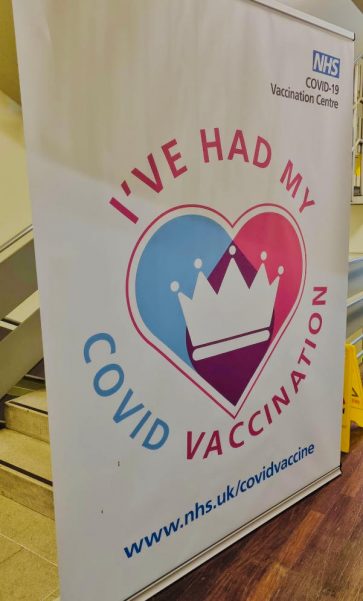
Germany removed priority limits on who can receive a coronavirus vaccine as of June 7, Health Minister, Jens Spahn announced.
Until now, only people categorized as priority groups could receive most vaccines. Priorities were classified by age, medical conditions, and profession. From June 7, however, the entire population aged 16 and older will be able to receive the vaccines.
The new rules will apply to vaccination centers, doctor’s offices, and company doctors.
Vaccine supply remains limited in Germany, so despite the removal of the priority, Spahn called for continued patience while people wait for an appointment.
Vaccinations are likely to continue “well into the summer,” Spahn said, with no chance of completing the process in June.
We had the opportunity to speak with Dr. Ana Maria Cardenas, a clinical microbiologist who investigates and develops clinical diagnostics for infectious diseases. She talked to us a bit about the importance of the COVID-19 vaccines.
Laura Viera Abadía: Why is it important to get vaccinated?
Dr. Ana María Cardenas: It is important to remember that vaccines not only protect the people who are vaccinated but also slow down the spread of the virus and over time can reduce the rates of new infections and protect society as a whole.
Laura Viera Abadía: What are the benefits of vaccines?
Dr. Ana María Cardenas: The benefits of these vaccines in the prevention of infections, hospitalization, and deaths outweigh the risks due to side effects.
Laura Viera Abadía: Are there side effects?
Dr. Ana María Cardenas: Yes, there can be side effects after any vaccine including COVID19. They are normal signs that the body is generating protection. Some side effects of the COVID 19 vaccine can be tiredness, chills, headache, but all of these should disappear in a few days.
Laura Viera Abadía: Maybe I am wrong, but I have read that there are people who have died from the vaccines, what exactly has happened?
Dr. Ana María Cardenas: Serious safety problems are rare and so far only two types of serious health problems have been detected. Mainly anaphylaxis and thrombosis syndrome, thrombocytopenia. It is very unlikely that serious side effects that cause a long-term health problem will occur after receiving the vaccine. The truth is that the monitoring of the vaccination has shown that the side effects occur about six weeks after the vaccination.
Laura Viera Abadía: Besides these serious side effects, can we say that they are safe or not?
Dr. Ana María Cardenas: The COVID 19 vaccines are safe and effective. They were evaluated in several thousand trial participants and met rigorous standards of safety, effectiveness, and manufacturing quality that were necessary to support their emergency and human use. Since the late 2020s, more than hundreds of millions of doses of the vaccine have been administered around the world, and studies to date have shown that the vaccines remain safe and effective.
How is the vaccination campaign going?
Germany has just administered its 40 millionth dose of vaccine. About 37% of the population has received at least one dose, and 11.2% are fully vaccinated against COVID-19. An estimated 15 million people received their first or second dose of vaccine before June 7.
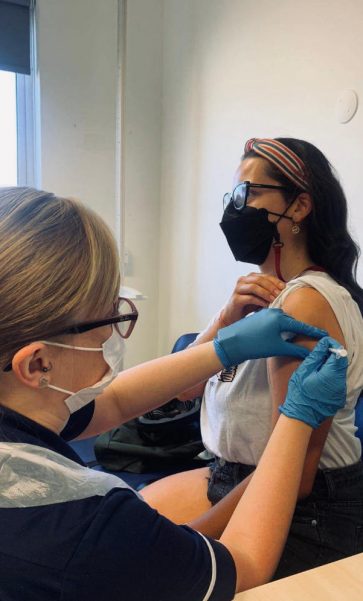
Spahn (German Federal Minister of Health since 2018) said authorities were already discussing when and how adolescents aged 12 to 16 could be vaccinated.
The European Union‘s pharmaceutical regulator expects to approve the BioNTech/Pfizer vaccine for use in children up to 12 years old in June.
The priority ranking of the AstraZeneca and Johnson & Johnson vaccines has already been lowered for physicians administering them in their practices. Some states have already withdrawn the priority ranking of other vaccines.
On Wednesday, May 26, walk-in COVID-19 vaccination begun for the 55-59-year-old population.
Laura Viera Abadía: How are the vaccination processes developing in the world?
Dr. Ana María Cardenas: Well, unfortunately, the vaccination processes around the world have been quite unequal. That is very true and unfortunate and in most countries, they are too slow.
Laura Viera Abadía: Is this slowness in the vaccination process problematic?
Dr. Ana María Cardenas: Yes, the truth is that we have to hurry. They are very slow and there is no time to lose. More than 3 million people have already died around the world and there should not be one more person dying from the virus.
The case of the vaccination process in each country is different. For example, in the Colombian case, Victor Manuel Muñoz, director of the Administrative Department of the Presidency, Dapre, assured that 100% of the 35 million Colombians included in the National Vaccination Plan will be vaccinated against the coronavirus.
During the week of June 21-27, Colombia will receive more than 3 million doses. The goal for June 2021 is to apply 17 million doses.
Although in theory, all this information about the vaccines is incredible, the truth is that there are areas where the second dose is being delayed. This is a process that involves distribution and allocation by the National Government, the departmental entities receive them, allocate them to the municipalities and distribute them to the IPS. This means that there is daily monitoring to manage the issue of dispatch and availability.
In Perú, the Minister of Health, Oscar Ugarte, stated that vaccination will allow the country’s residents to be protected against an eventual third wave of Covid-19.
For this reason, the second vaccination took place between July 17 and 18, and the third was between July 24 and 25. It is expected to vaccinate 200,000 people in two groups: those between 47 and 49 years of age and those over 50 years of age who have not received the first or second dose.
Laura Viera Abadía: Should vaccination be mandatory?
Dr. Ana María Cardenas: Some consider that mandatory vaccination can be ethically justified if the threat to public health is serious, confidence in the effectiveness of the vaccine is high, the expected utility of the vaccine is greater than the alternatives, and if the sanctions or costs for non-compliance are proportionate. I believe that making vaccination mandatory depends on the culture and objectives of making vaccination mandatory.
A question of effectiveness
For the scientific community, vaccine effectiveness and efficacy are not the same things.
But the term efficacy is used when referring to “a study that is conducted under ideal conditions, for example during a clinical trial.” The term effectiveness is used for “a study conducted under typical, i.e. less controlled, environmental conditions”.
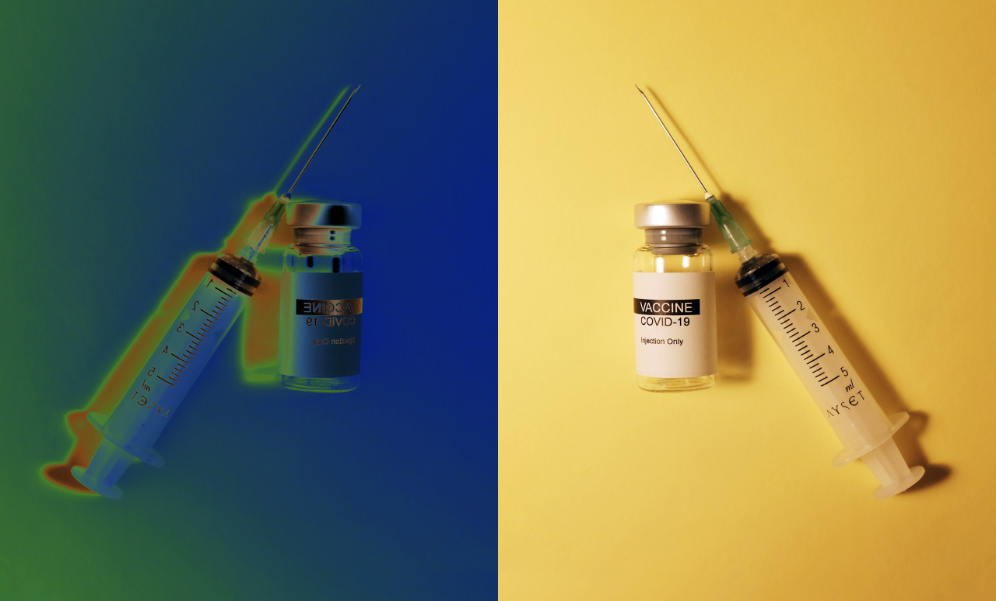
This explains why many experts predict that the unexpectedly high percentages of efficacy shown by the approved vaccines in laboratory trials will decrease when they are applied in the real environmental conditions of the population when we stop talking about the efficacy and start talking about effectiveness.
Even so, they will continue to be, together with social distancing, the best weapon humanity has in its war against the virus.
Laura Viera Abadía: It is a little confusing for me, can you tell me a little bit about the efficacy and effectiveness of vaccines?
Dr. Ana María Cardenas: Of course, in terms of the effectiveness and efficacy of vaccines, they are related but they are not the same thing.
Laura Viera Abadía: What is the difference?
Dr. Ana María Cardenas: Efficacy is a measure made during the clinical study, a clinical trial. And effectiveness is how well the vaccine works in the real world. So to identify efficacy, the researchers, vaccinate people in one group and give a placebo to people in another group. They then wait for each of the groups to get sick, observe how many of the neonates are in each group, and after that, the scientists determine the relative difference between the two groups and express that difference with a value called efficacy. If there is no difference between the vaccine and placebo groups, the efficacy is zero percent. If there is no vaccine among the patients, the efficacy is 100 percent.
Laura Viera Abadía: Okay, that part is a little clearer to me. But what happens after a vaccine has been approved?
Dr. Ana María Cardenas: After a vaccine has been approved, experts continue to evaluate its effectiveness in real-world conditions and these evaluations are known as effectiveness studies. Their main objective is to find out how a vaccine protects people outside the rather strict clinical trial settings.
Laura Viera Abadía: How important is it to measure the effectiveness of a vaccine?
Dr. Ana María Cardenas: It is important to measure the effectiveness of the COVID 19 vaccine in groups of people who are at higher risk of becoming seriously ill or those who are at higher risk of contracting COVID 19. Effectiveness studies continue to show the effectiveness of more than 90% overall after completing the appropriate doses for each vaccine.
COVID vaccines, the great hope for ending the pandemic, are not reaching everyone.
World leaders believe that no one is fully protected until everyone is.
But reaching a consensus on how to boost vaccine production in the face of the huge gap between vaccination rates in advanced and poorer nations is proving a bigger headache and a bigger problem than expected.
A patent issue
It is necessary to keep in mind that medicines are covered by patents that provide legal protection to prevent them from being copied. Obviously, vaccines are no exception.
But what do patents do? Well, patents give manufacturers the rights to their discoveries, as well as the means to make money from them, which is an incentive to encourage innovation.
Last year, a group of countries led by India and South Africa proposed to the World Trade Organization (WTO) that patents on vaccines and other coronavirus-related items should be exempted from this protection.
They argued that, given the extreme nature of the pandemic, the prescription for these life-saving injections should be made widely available so that other manufacturers could mass-produce them locally.
But immediately pharmaceutical companies and Western nations, including the European Union, the United Kingdom, and the United States strongly criticized this proposal.
We should keep in mind that, most of the costs involved in the creation of vaccines occur during the research and development stage.
Some manufacturers, such as AstraZeneca, are offering the vaccine at a cost price.
Are there risks in releasing patents?
It is important to keep in mind that patents cover the fundamentals of the project, but not the precise production process instructions.
That is crucial here. The mRNA-type vaccines, such as Pfizer‘s and Moderna‘s (mRNA-type vaccines), use very sophisticated new technology and only a small number of people know how to produce them.
BioNTech, the German company that partnered with Pfizer, has said that developing the production process took a decade, and verifying production sites can take up to a year. Availability of the necessary raw materials has also been a problem.
The European Union says the best short-term solution would be to improve the supply chain and pressure richer countries to export more vaccines.
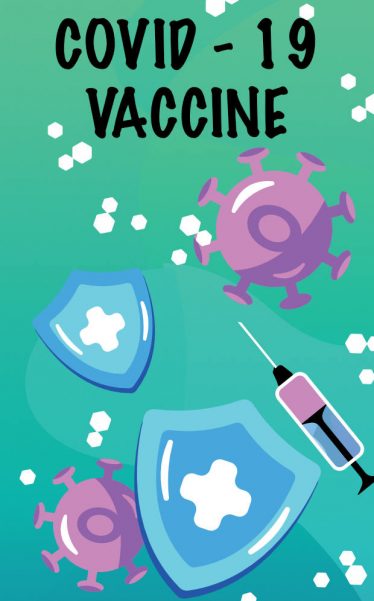
The UK claims to be one of the largest donors to Covax, the international mechanism that is driving vaccine delivery in many poorer countries. It also favors voluntary licensing, such as the collaborations between India’s Serum Institute and Oxford-AstraZeneca.
Governments can impose compulsory licenses on vaccine manufacturers, forcing them to share their expertise and monitoring the production process along the way. But those pharmaceutical companies would have to be compensated for doing so.
U.S. President Joe Biden expressed support for freeing up patents in an apparent reversal of his country’s initial position (a position made during the Trump administration).
The announcement came after U.S. Trade Representative Katherine Tai met with major vaccine manufacturers in an effort to boost vaccine production.
Now, discussions must continue at the World Trade Organization where decisions are made by consensus.
mRNA vaccines
Usually, for vaccines to work, an attenuated or inactivated germ is injected into our bodies. This is not the case with mRNA vaccines.
mRNA vaccines are a new type of vaccine that protects against infectious diseases.
mRNA vaccines teach our cells to produce a protein, or even a portion of a protein, that triggers an immune response within our body.
That immune response, which produces antibodies, is what protects us from infection if the actual virus enters our bodies.
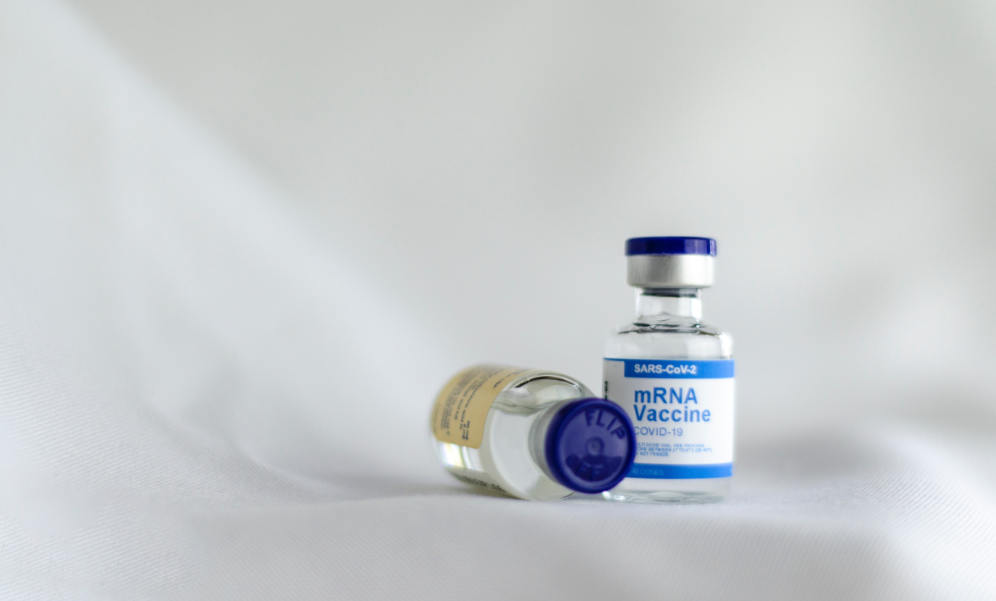
They then instruct our cells to produce a harmless portion of what is known as the “Spike protein”. The Spike protein is present on the surface of the virus that causes COVID-19.
First, mRNA vaccines against COVID-19 are applied to the upper arm muscle. Once the instructions (mRNA) are inside the immune cells, the cells use them to produce a portion of the protein. Once our body created that portion of the protein, the cell breaks down the instructions to get rid of them.
The cell then displays the portion of the created protein on its surface. Our immune system recognizes the protein as a foreign body and begins to generate an immune response and produce antibodies, as happens when a natural infection against COVID-19 occurs.
At the end of the process, our bodies will have learned to protect themselves against future infections. The benefit of mRNA vaccines, as with all vaccines, is that people who get them have protection without the risk of serious consequences of contracting COVID-19.
A travel issue
The truth is that with summer approaching and vaccination rates rising, some European Union countries are moving a little faster to open their borders. Clearly, many people who have already been vaccinated against COVID-19 are anxious to go on vacation.
The EU’s new “COVID Digital Certificate” will come into force from July 1 to facilitate travel within Europe. Member States have recently agreed on recommendations to allow fully vaccinated tourists from abroad to return to the EU.
But for now, the situation varies from country to country, so here are some of the rules – and exemptions – in place for vaccinated travelers across the EU.
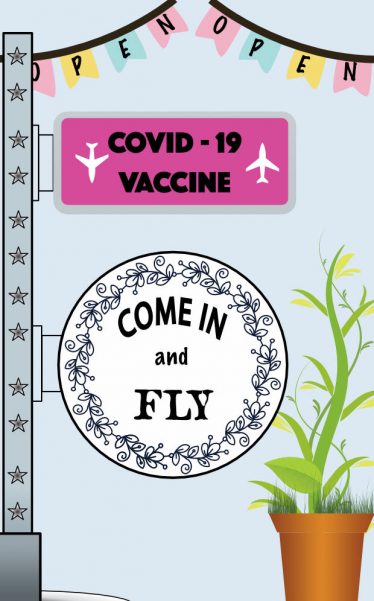
The French case is very interesting. First of all, we should note that France is the number one destination for international tourism and is reopening for many visitors from around the world who have received full doses of vaccination as of June 9.
Under the new rules, vaccinated persons traveling from the EU and France’s “green” list countries can avoid the COVID-19 test requirement altogether.
Meanwhile, vaccinated tourists on France’s “orange” list – will no longer need to demonstrate an essential reason for travel. They will be exempt from quarantine but must present a negative COVID-19 test.
Unvaccinated persons from these areas will only be able to enter France for essential reasons, such as attending a funeral or receiving urgent medical care. The same applies to France’s “red” list, which includes South Africa, India, Chile, Argentina, Bolivia, Uruguay, and Colombia. All persons arriving from red zones must self-isolate for at least seven days, even if they are vaccinated.
On the other hand, Spain opened its borders to vaccinated travelers from many countries around the world on June 7. Individuals entering Spain from what are considered “at-risk” areas can avoid quarantine requirements by presenting proof of full vaccination with a vaccine that has been approved by the European Medicines Agency (EMA) or the World Health Organization (WHO), a COVID-19 catch-up test, or a negative test.
Keep in mind that the second dose of vaccination must have taken place 14 days prior to travel. Spain has surprised Europe by allowing tourists from the UK to enter freely, regardless of their vaccination status.
Greece is open to tourists from about 50 countries, including all EU member states, the United States, Canada, Russia, and China. Travelers must have a certificate of vaccination, a negative PCR test, or a COVID-19 catch-up test.
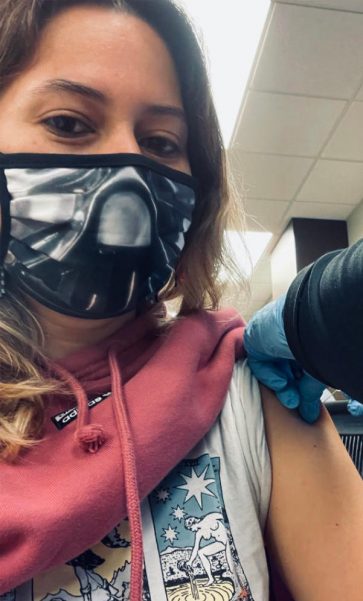
Greek authorities consider people to be fully vaccinated 14 days after the last dose was administered, and all travelers may still be subject to random rapid testing at the airport. All arrivals must complete a passenger tracing form at least 24 hours prior to arrival.
The case of Germany is a bit more complicated given that most travel to Germany from outside the EU and Schengen area is still limited to urgent travel. However, Germany has begun to accept COVID-19 certificates in some cases where travel is permitted.
Although travelers who have passed through what Germany considers a “risk zone” (Argentina, Bolivia, Chile, Costa Rica, Ecuador, Colombia, Mexico, Paraguay, Peru) must enter quarantine upon arrival in Germany, as a rule, the isolation period can be “terminated early” if a vaccination certificate is presented, according to the country’s Robert Koch Institute.
Not all vaccines are accepted
That is a matter of each country’s individual regulations. The surprise for many lies in the fact that not all countries are accepting people who have received some vaccinations.
According to the European Union, a certificate will be issued for its member countries to anyone who has been vaccinated with any type of immunization recognized against covid-19, although there are some conditions.
For example, there have been inconveniences for some travelers who were immunized with the AstraZeneca vaccine, from Oxford in the United Kingdom.
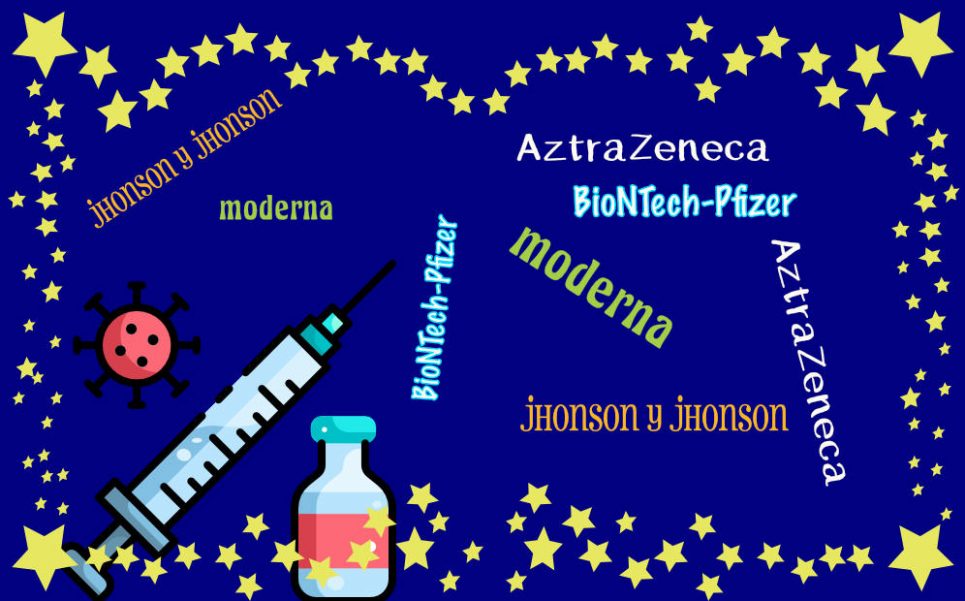
Some variants of the immunizer such as Covishield, made in India, are moving forward to be recognized by the European Medicines Agency (EMA); as well as the African Union also spoke of possible discrimination for travelers from their continent.
The European Union has established that any vaccine that has been approved by the World Health Organization will be recognized. However, restrictions may change from country to country.
Within the WHO list, AstraZeneca and its variant Covishield are recognized, as well as the one produced in South Korea, SK Bio. Also recognized are those of Sinopharm and Sinovac of Chinese origin, as well as those developed by BioNTech-Pfizer, Moderna, and from Janssen, Johnson & Johnson’s.
It should be clarified that all these vaccines may be restricted in the WHO yellow vaccination card, so they have regional licenses and that is why there are limitations for travelers in some countries in particular.
This means that the 27 member countries of the EU have the possibility to accept the WHO recommendations but it is not an obligation that they have to abide by since each one has the autonomy as a nation to choose which ones are allowed.
Therefore, the best thing to do is to look up the particular restrictions and vaccinations that are being accepted in each country you want to enter before making your travel itinerary.
Concluding
The main objective of vaccines is to save lives. But so far we do not have an effective solution. There is no such solution not only because the virus is constantly changing because we do not know enough about COVID 19, but also because not enough has been done to analyze the vaccines and their effects, and not enough people around the world are being vaccinated.

One issue of concern is that restrictions in every country are becoming laxer.
The World Health Organization (WHO) has warned that lifting restrictions too soon could lead to a “lethal resurgence” of the pandemic.
Let’s not lose sight of the fact that although we are already tired of the pandemic and we think that it has been a long time, it is not so, this pandemic story began in 2020.
So, unfortunately, we do not know what is going to happen in the long term, neither with the disease nor with the immunity stimulated by vaccines.
The possibility of endangering more lives and losing the gains that have been made in the fight to control the new coronavirus pandemic is one of the central elements of any strategy.
We must wait for the vaccines to do their job, for the immunity they give us to last long enough to diminish the intensity of the epidemic and to have a much more bearable situation.


